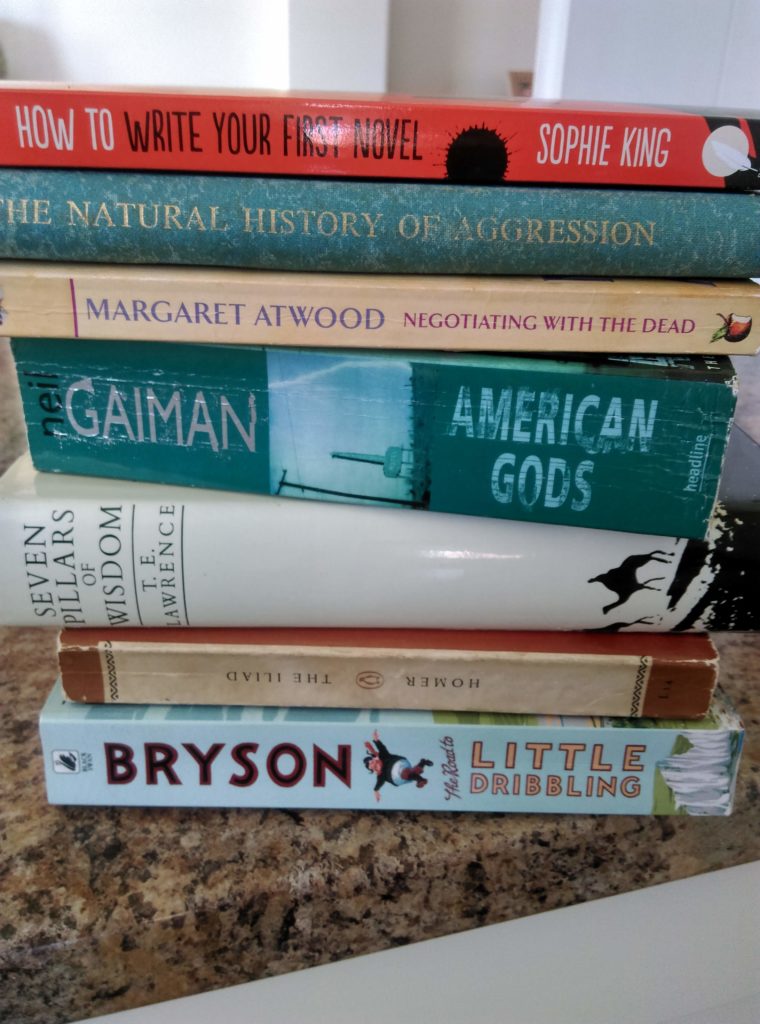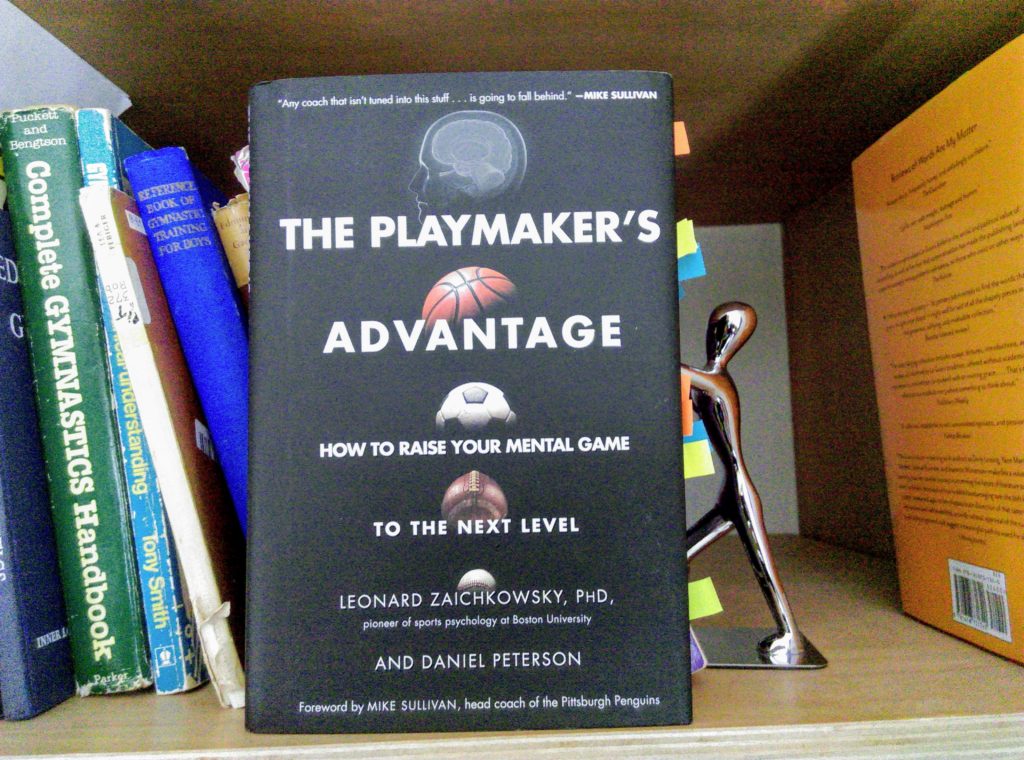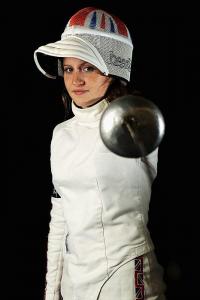Main Menu
Latest Blog Entry
User login
Summer Reading Recommendations for Teachers and Coaches
Ideas on what to read this summer

Are you looking for a good book to read on holiday? We are over half way through the year, so I have had a chance to read a few that may be of interest.
You might want to unwind with some easy reading and then gear up for the season or autumn term with something more substantial.
I try to avoid hype trains; they often make a lot of noise and leave nothing but dust and leaves spinning mindlessly behind. The reader picks themselves up, brushes off the dirt and continues along the track until they hear “You must read this, you must read this” and promptly get knocked down again.
Instead, I shall just recommend books that are well written, informative and entertaining in some fashion. At the end of this blog you can see a short summary of every book I have read so far this year.

I have avoided buying books this year for the most part, and used the excellent library service. This is an effort to get my Tsundoku down to a manageable size.
I did have a small flurry post GAIN as usual, thanks to my colleagues recommending books.
Light but worthy.
- West: Carys Davies. Sublime short novel about exploration and grief. Simple and elegant. If you can only read one novel this year, this will inspire you to read more
- Revolutionary Road: Richard Yates. Superb novel about a dysfunctional couple in the suburbs of Connecticut. A page turner
- How to Live on 24 Hours a day: Arnold Bennett. A super little book on making the most of your time. It can be read on a flight. I have written a full description here.
- Words Are My Matter: Ursula K. Le Guin. A series of essays, book reviews and literary thoughts from the recently deceased author. Famous for her SF books, but the ideas and expressions in this book have opened my mind to new avenues of reading. A treat.
- Writing with Intent: Margaret Atwood. A collection of essays, reviews and thoughts from this veteran writer. I couldn’t put this down. I loved the writing. I had never read Atwood until this year, taking Le Guin’s recommendation and running with it.
Impress your colleagues with your knowledge
If the staff room is full of teachers looking at Instagram for ideas for their next lesson, then try these out for size.

- The Playmaker’s Advantage: Leonard Zaichkowsky. Well written, well evidenced account of how game sense is developed in the brain. Good examples throughout. Essential for those working within “Talent Development Pathways”!
“Junior success is a poor indicator of long-term senior success. Their success at the age of 10 had a zero correlation with their success as a senior. Same was true with their success at ages 11-14 and 15-18. We have a zero correlation. That means those who were better at a young age were not those who were better at an older age.” Quoting Arne Gullich’s research of German soccer development academies and German Olympic sports. - Doctrines of the Great Educators: Robert Rusk. A synopsis of thoughts from Plato, Montessori and several others. Lots of good ideas. Full review here.
- The End of Average: Todd Rose. Very interesting book about statistics being badly applied to humans.
“The fact that there is not a single, normal pathway for any type of human development- biological, mental, moral, or professional- forms the basis of the third principle. This principle makes two important affirmations:
• First, in all aspects of our lives and for any given goal, there are many, equally valid ways to reach the same outcome
• Second, the particular pathway that is optimal for you depends on your own individuality.” - The Courage To Be Disliked: I. Kishimi & F. Koga. Interesting look at Adlerian Psychology, told in a student/ teacher type interview. The two main points are to develop self- reliance and to live in harmony with society.
“A way of living that acknowledges only company work is one that is lacking in harmony of life.”
A thoughtful quote to end on as you go away for some relaxation and reflection time.
The Full List
- Words Are My Matter: Ursula K. Le Guin. Excellent start to reading in 2019 with this series of essays, book reviews and literary thoughts from the recently deceased author. Famous for her SF books, but the ideas and expressions in this book have opened my mind to new avenues of reading. A treat.
- The Courage To Be Disliked: I. Kishimi & F. Koga. Interesting look at Adlerian Psychology, told in a student/ teacher type interview. The two main points are to develop self- reliance and to live in harmony with society.
- The October Country: Ray Bradbury. Collection of Gothic horror stories.
- The Barcelona Way: Damian Hughes. A mish-mash of ideas gleaned from observations during Pep Guardiola’s time at the club. Some good points from this: Cultural Architect, Cultural Assassin.
- The Lonely Voice: Frank O’Connor. High craft, reading it makes me want to be better. A series of essays about short story writing looking at literature’s greats.
- Surfacing: Margaret Atwood. Novel set in Quebec featuring a woman trying to find her identity and not submitting to cultural norms. Enlightening.
- Son of the Morning Star: Evan Connell. Extensive historical account of Colonel Custer and the battle of the Little Big Horn.
- Sketches From a Hunter’s Album: Ivan Turgenev. Collection of stories from 19th century Russia. Shows the plight of the peasants. Entertaining and great atmospheric descriptions.
- Crazy Weather:Charles L. McNichols. Super coming of age story of a white boy living on a Mojave reservation. Very detailed descriptions.
- The End of Average: Todd Rose. Very interesting book about statistics being badly applied to humans.
- The Trial: Franz Kafka. Interesting story, but turgid writing and structure make it a tough read
- Most Secret: Nevil Shute. A ripping war yarn about a secret mission in France. Splendidly understated.
- Slide Rule: Nevil Shute. Autobiography of this engineer and author, detailed account of early aviation in the UK.
- Skin in the Game: Naseem Taleb. A few good points set out in this unnecessarily thick book. If you lecture but don’t practice, or have a tangible downside if you are wrong, then you lack “skin in the game.”
- The End of the Affair: Graham Greene. Short novel set in the 1940s, concise expression of human love and faith.
- Brilliant Presentations: Richard Hall. Well laid out and easy to follow guidelines on improving your presentations.
- Revolutionary Road: Richard Yates. Superb novel about a dysfunctional couple in the suburbs of Connecticut. A page turner
- West: Carys Davies. Sublime short novel about exploration and grief. Simple and elegant.
- Doctrines of the Great Educators: Robert Rusk. A synopsis of thoughts from Plato, Montessori and several others. Lots of good ideas.
- Stone Mattress: Margaret Atwood. Nine tales of speculative fiction. A leaning towards the older generation. Good fun.
- Where Shall We Run To?: Alan Garner. Amusing and poignant autobiography of childhood in the war.
- Space,Time and Nathaniel: Brian Aldiss. 1950s SF short stories, some good ideas.
- The Mint: T.E. Lawrence. Autobiographical account of Lawrence’s time as Airman Ross in the RAF basic training. Superb prose about life as a recruit between the wars. Hardly ever referenced, but I would recommend.
- How Things Are, A Science Tool-Kit For The Mind: Ed. John Brockman & Katinka Matson. A series of essays written in 1994 about science based topics and ideas. Thought provoking and interesting to read now, 25 years later, how much has changed.
- Winning in the Trenches: Forrest Gregg. Autobiography form this Packer great. The most interesting part is his childhood, and then dealing with the players’ strike in Green Bay. A great man, the book is less so.
- The Creative Writing Handbook: Ed. J. Singleton & M. Luckhurst. A series of workshop ideas and premises for writing groups such as short stories, poetry , journalism and screenplays. Useful, but written 20 years ago, so dated in parts.
- Death in Venice and Other Short Stories: Thomas Mann. A sad collection of dysfunctional individuals, written over one hundred years ago. Superbly written.
- Deep Work: Cal Newport. A look at how to be productive, rather than busy. Very good ideas on switching off and concentrating on purposeful work.
- The Shrinking Man: Richard Matheson. Classic SF story, focusing on the detail at home of this problem.
- Encyclopedia of Physical Education, Fitness and Sports (Vol 4): Ed. T Cureton. Produced in 1985, so dated in some parts, but excellent in others. Very easy to read and well laid out. Information presented for coaches and teachers should always be this good.
- The Black Klansman: Ron Stallworth. So strange it can only be true account of the black police officer infiltrating the Colorado Springs branch of the KKK. Entertaining.
- Forgotten Voices, of the Falklands War: Hugh McManners (Ed). Imperial War Museum account of various people in the conflict. Heavy Para bias and critical of Sandy Woodward and 5 Brigade. Their viewpoints would have been appreciated.
- How to Live on 24 Hours a Day: Arnold Bennett. A super little book about making use of the time we have got. Beautifully written and very relevant.
- Live and Let Die: Ian Fleming. A James Bond novel, interesting, but seems racist in parts now.
- Jeeves in the Offing: P.G. Wodehouse. Comedic novel.
- The Inimitable Jeeves: P.G. Wodehouse. Short stories featuring the fall and rise of Bingo Little.
- The Playmaker’s Advantage: Leonard Zaichkowsky. Well written, well evidenced account of how game sense is developed in the brain. Good examples throughout.
- The Kean Land: Jack Schaefer. Collection of western short stories. Some are very good.
- Writing with Intent: Margaret Atwood. A collection of essays, reviews and thoughts from this veteran writer. I couldn’t put this down. I loved the writing.
- Why Zebras Don’t Get Ulcers: Robert Sapolsky. In depth look at stress and how it affects the human body. Extremely informative and entertaining to read.
Read my All time recommended reading list for teachers and coaches
Thanks as usual to Devon Libraries and the Hayridge in Cullompton for the loans, and to Mandi Abrahams of Castle Books in Beaumaris for her annoying habit of recommending two books for every one I have just read!
If you have a suggestion on what to read this Summer, please leave it in the comments below.
Client Testimonials
 Jenny McGeever
Jenny McGeever
James has been my strength and conditioning coach since June 2009 and during this time he has provided me with constant support and helped me develop as an athlete, from Under 17 international level to senior international. He is currently helping me with my transition from fencer to Modern Pentathlete.
More


Comments
Here are books I have read this year that are great reads. 1) Range: Why Generalists Triumph in a Specialized World by David Epstein — this is a must read for anyone in coaching or teaching 2) Working: Researching, Interviewing, Writing by Robert Caro — more of a memoir of the working life of one of our greatest current historians. 3) On Writing: A Memoir of the Craft by Stephen King — possibly the best book I have ever read on writing and being a writer. 4) Say Nothing: A True Story of Murder and Memory in Northern Ireland by Patrick Radden Keefe — the best book I have ever read on the Troubles — totally gripping and I think should be one of the most important books of 2019 given the issues in our world.
Thanks Patrick. “On Writing” is very good.
Light reading: The Accidental Further Adventures of the Hundred Year Old Man by Jonas Jonasson. Probably should read the original first, but each is humorous and an easy read.
The MVP Machine: How Baseball’s New Noncomformists Are Using Data to Build Better Players by Ben Lindbergh. Interesting look at how the training of baseball players has changed.
Thanks Brian, I haven’t even heard of either of those. That’s what I love about my GAIN colleagues- most of them are fellow bibliophiles.
Challenging read:
Thought in Action-Expertise and The Conscious Mind by Barbara Gail Montero. This is written by a philosophy professor and former dancer. The arguments she makes are detailed and cover many aspects of the topic in great detail. It is not intended to be for the general reading public. But, I think it adds a great deal to the field of expertise and practice for coaches. She is arguing that performers at the highest level consciously think to be at their best and don’t unconsciously “Just Do It”.
Fun and worthwhile read:
Iron Ambition: My Life with Cus D’Amato by Mike Tyson.
This book is an entertaining read and goes into the methods and training ideas of Cus D’Amato. He was a big believer in the mental part of the boxing game. An interesting pairing with Thought in Action; Cus was not a “thought in action” kind of coach.
Thanks Andy. I have got “Iron Ambition” out of the library, next up for me to read. I always ask the question in the age of celebrity training, “Who would you rather teach you to box: mike Tyson or Cus D’Amato?”.
Unfortunately, doing a “workshop” with Tyson, followed by a selfie seems to be the preferred choice.
I would rather learn from the man who has had many experiences in boxing, not just one.